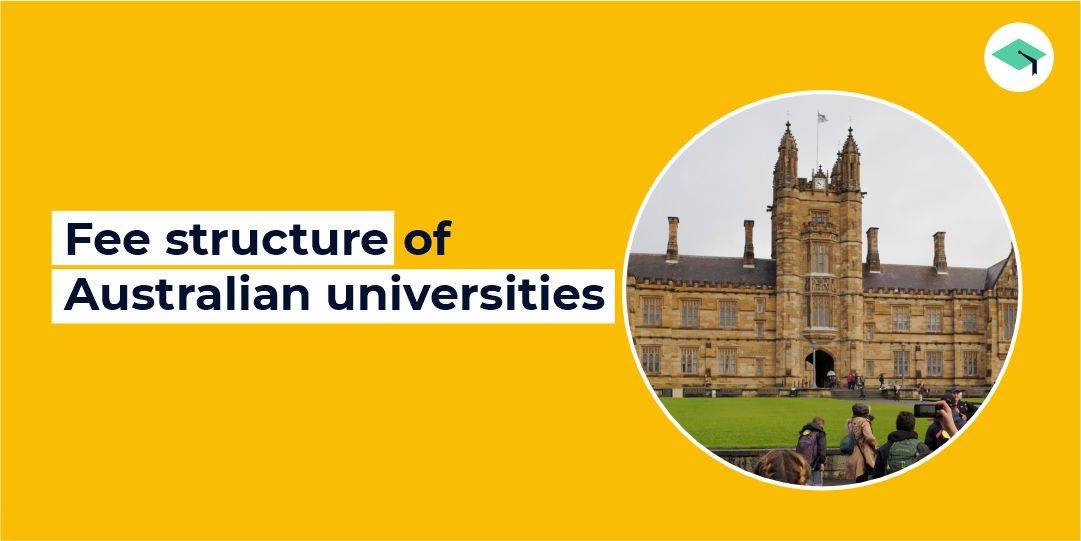The fee structure of Australian universities, including the fees for international students, plays a crucial role in determining the affordability and accessibility of higher education.
Understanding the fee structure of Australian universities is essential for prospective students seeking information on tuition costs and financial planning.
Tuition fees for international students
Australian universities offer a wide range of courses and programs to international students, but the tuition fees can vary depending on several factors. Generally, international students can expect to pay higher tuition fees compared to domestic students.
The fees are determined based on the level of study (undergraduate or postgraduate), the field of study, and the specific university. It is important to note that tuition fees can differ significantly between universities and even between different programs within the same institution.
Fee components
The fee structure of Australian universities consists of various components apart from tuition fees. These additional fees may include enrollment fees, library fees, laboratory fees, student service fees, and material fees, among others.
It is advisable for prospective international students to carefully review the fee structure of their chosen university and program to have a clear understanding of all the associated costs.
Fee payment options
Australian universities provide flexible options for paying tuition fees. International students can choose to pay their fees upfront for each semester or decide on installment payments.
Some universities also offer scholarships or financial assistance programs that can help offset the cost of tuition fees for eligible students. It is important to explore these options and consult with the university’s international student office for detailed information.
Scholarships and financial aid
To promote diversity and attract talented students, Australian universities offer various scholarships and financial aid programs specifically designed for international students.
These scholarships can provide partial or full coverage of tuition fees, living expenses, and other related costs. It is crucial for international students to research and apply for scholarships well in advance as competition can be high.
Living expenses
In addition to tuition fees, international students need to consider the cost of living in Australia. Expenses such as accommodation, meals, transportation, health insurance, and personal expenses should be factored into the overall budget.
Australian universities often provide guidance and resources to help students estimate their living expenses and plan accordingly.

Fee Structure of Canadian University
Fee variations and discounts
While tuition fees for international students in Australian universities can be higher compared to domestic students, there may be variations and discounts available.
Some universities offer reduced fees for certain programs or specific countries. Additionally, early payment discounts or fee waivers might be available for students who pay their tuition fees in full before a certain deadline. It is worth exploring these opportunities to potentially reduce the overall cost of education.
Cost of health insurance
International students studying in Australia are required to have health insurance coverage. The cost of Overseas Student Health Cover (OSHC) varies depending on the provider and the duration of the program.
It is important to consider this additional expense when budgeting for education in Australia.
Part-time work opportunities
International students in Australia are allowed to work part-time while studying. This can provide an additional source of income to help cover living expenses and reduce the financial burden.
However, it is important to balance work and study commitments to ensure academic success remains the top priority.

How to save money every day?
Long-term financial planning
Considering the high cost of education and living expenses, it is crucial for international students to engage in long-term financial planning.
This includes developing a budget, exploring potential sources of funding such as scholarships, and considering part-time employment opportunities.
Financial institutions in Australia also provide banking services tailored to international students, which can assist with managing finances effectively.
Monitoring fee changes
It is important to stay updated on any changes in the fee structure of Australian universities. Tuition fees and other related costs may vary from year to year, and it is essential to be aware of any modifications to make informed decisions.
Regularly checking the university’s official website, contacting the admissions office, or seeking advice from educational consultants can help stay informed about any fee changes.

Budgeting Myths to Bust
Consideration of exchange rates
International students should consider the exchange rate between their home currency and the Australian dollar when budgeting for their education.
Exchange rates can fluctuate, which can impact the overall cost of studying in Australia. It is recommended to keep track of exchange rates and consider any potential impact on tuition fees and living expenses.

How to get double taxation relief
Additional fees for specific programs
Certain programs, such as medical, dental, or engineering degrees, may have additional fees associated with specialized equipment, materials, or practical training.
International students interested in these programs should inquire about any extra costs during their research to ensure they have a comprehensive understanding of the financial requirements.
Researching university rankings and reputation
When evaluating the fee structure of Australian universities, it is crucial to consider the institution’s rankings and reputation.
Higher-ranked universities may have higher tuition fees but can also offer greater opportunities for academic and career advancement. Balancing the cost of education with the quality and reputation of the university is an important aspect of decision-making.
Utilizing university support services
Australian universities typically provide support services for international students, including financial counseling and assistance.
These services can help students navigate the fee structure, explore scholarships and grants, and provide guidance on managing finances effectively.
International students should take advantage of these resources to make informed financial decisions.
Seeking advice from current students or alumni
Speaking with current students or alumni of Australian universities can provide valuable insights into the fee structure and overall student experience.
They can share their firsthand experiences, offer advice on managing finances, and provide information on potential scholarships or financial aid opportunities.
Connecting with student groups or alumni associations can be a helpful way to gather additional information.
Understanding the fee structure of Australian universities is crucial for international students. By researching, planning, and exploring available resources, students can make informed financial decisions and embark on a rewarding educational journey in Australia.
